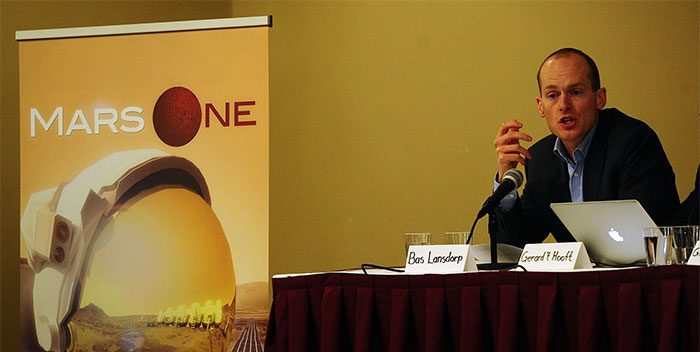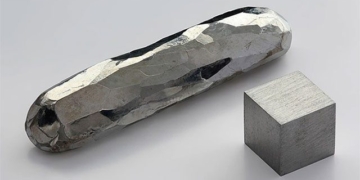The Mars One Project once attracted thousands of applicants with the goal of establishing human settlement on Mars by 2031, with participants never returning to Earth.
Curiosity and a penchant for novelty have been ingrained in human nature for thousands of years. With the Earth’s population continuously rising and the planet’s ecosystem in decline, some have contemplated the possibility of relocating to another planet for settlement. Visionaries like Elon Musk have demonstrated the feasibility of such a project, as the necessary technology is available, though it remains prohibitively expensive for “mass production.”

The Mars One Project once attracted thousands of participants.
However, in 2011, one man sought to bring this vision and dream closer to “reality”. More accurately, this man exploited the “foolishness” of wealthy investors. Bas Lansdorp is the co-founder and CEO of the private organization Mars One. Before Mars One, Lansdorp had already established himself as a successful entrepreneur in the Western world, which enhanced the company’s value and attracted investment.

In the first two years, many invested heavily in this project.
Mars One began with Lansdorp’s dream of colonizing Mars and transforming it into a habitable environment for humans. This ambition is grand, and indeed Lansdorp spent several years collaborating with engineers and space scientists who witnessed his drive for this project and subsequently supported his vision. As an entrepreneur, he understood that this project would require substantial investment, so he utilized his business acumen to seek out individuals with two things he needed: a desire to move to another planet and a lot of money!
Lansdorp estimated $6 billion to initiate the first missions and establish a living environment capable of producing food, allowing those relocating to Mars to survive without support from Earth.
In the first two years since the company’s inception, over 220,000 individuals invested significant sums. These investors were promised the opportunity to travel to Mars; however, only a select few would be chosen to venture into space initially, with others gradually migrating to the new planet over time.

Some people have considered the possibility of relocating to another planet.
Over the years, the company consistently received investments from people worldwide, but they never signed contracts. On paper, the company (Mars One) was not even registered. For eight years, they claimed to be a legitimate company, hiring hundreds of staff; however, only four people were genuinely active within the organization, Lansdorp and four others reportedly his friends.
“Since we launched Mars One in March 2011, we have received support from scientists, engineers, entrepreneurs, and technology companies from around the world. The announcement of our plans in May 2012 attracted widespread public participation and support from sponsors and investors. I feel like my dream is becoming a reality” (quoted from the Mars One website, written by Bas Lansdorp).
To demonstrate his legitimacy, he offered to speak for free at various organizations about the Mars One project and his vision. Everything he was doing appeared legal, but some felt skeptical about the entire project as it simply sounded too good to be true. Consequently, they began seeking information about the company. Since it was a private entity, most information was also private. However, this did not deter some investors who wondered where their money had actually gone.
The man behind the company was a master in marketing, as he presented everything at a professional level while using his platform as a scholar to generate credibility for the fraudulent company. The publicity surrounding the company led people to believe that his project was genuine.
However, other reputable organizations in the space and technology sectors had a different view. Research conducted by MIT (Massachusetts Institute of Technology) indicated that even if participants in this project reached Mars, they would die within 68 days due to extremely low temperatures and harsh environmental conditions. In response, Lansdorp promised all investors that the project would be completed by 2027.

Bas Lansdorp – Co-founder and CEO of the private organization Mars One.
The company was also supported by numerous international space organizations, demonstrating how Lansdorp utilized this to not only build credibility around the project but also provide reasons for investors to trust him with their funds.
In January 2019, the company was declared bankrupt, with private bank accounts showing that it owed $25,000. Since then, no information about Lansdorp or Mars One has surfaced, as all assets owned by the company have been liquidated.
Financial accounts were never publicly displayed, but speculation suggests that Mars One raised several billion dollars. It is believed that Lansdorp took all the money and left the public media behind.





















































